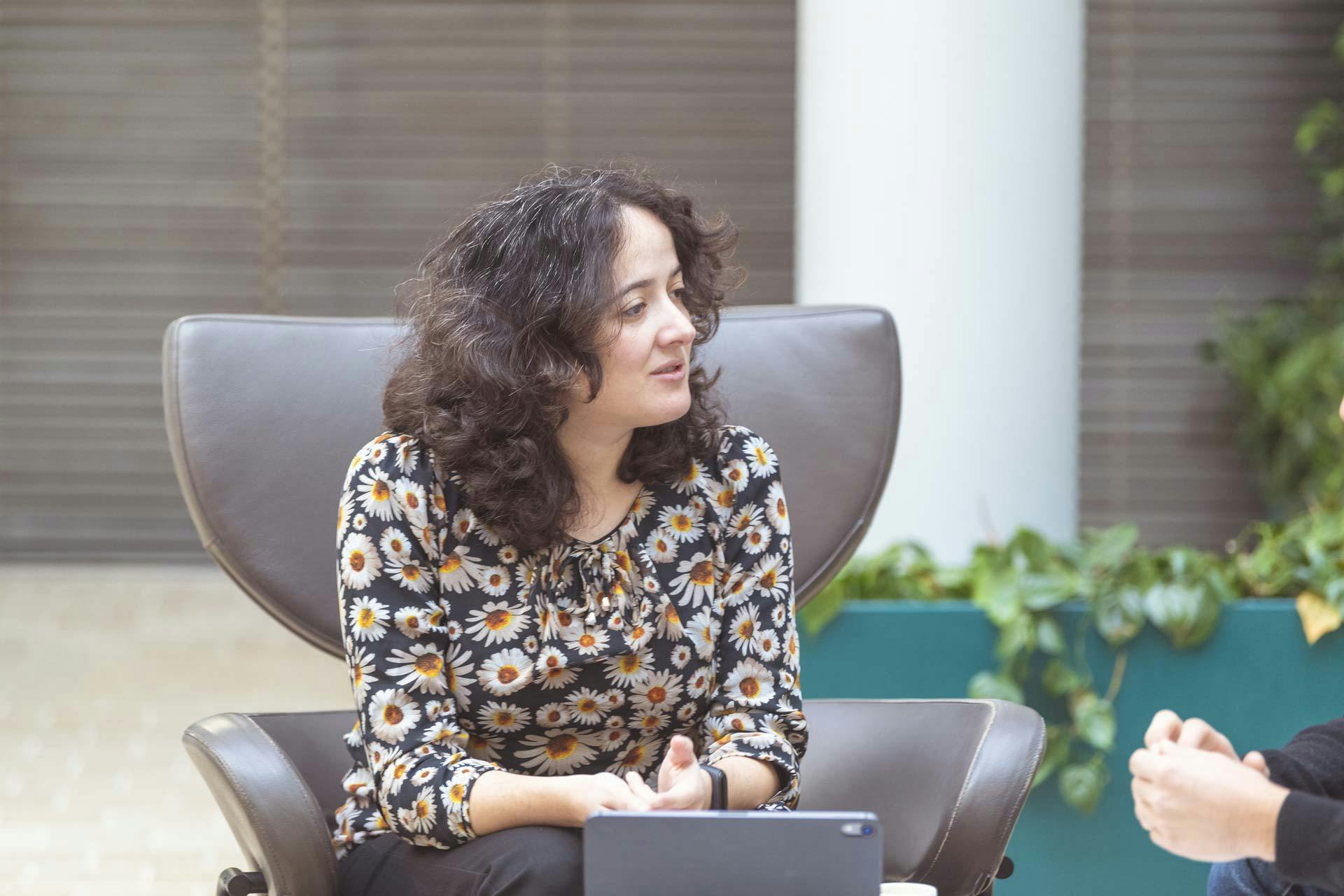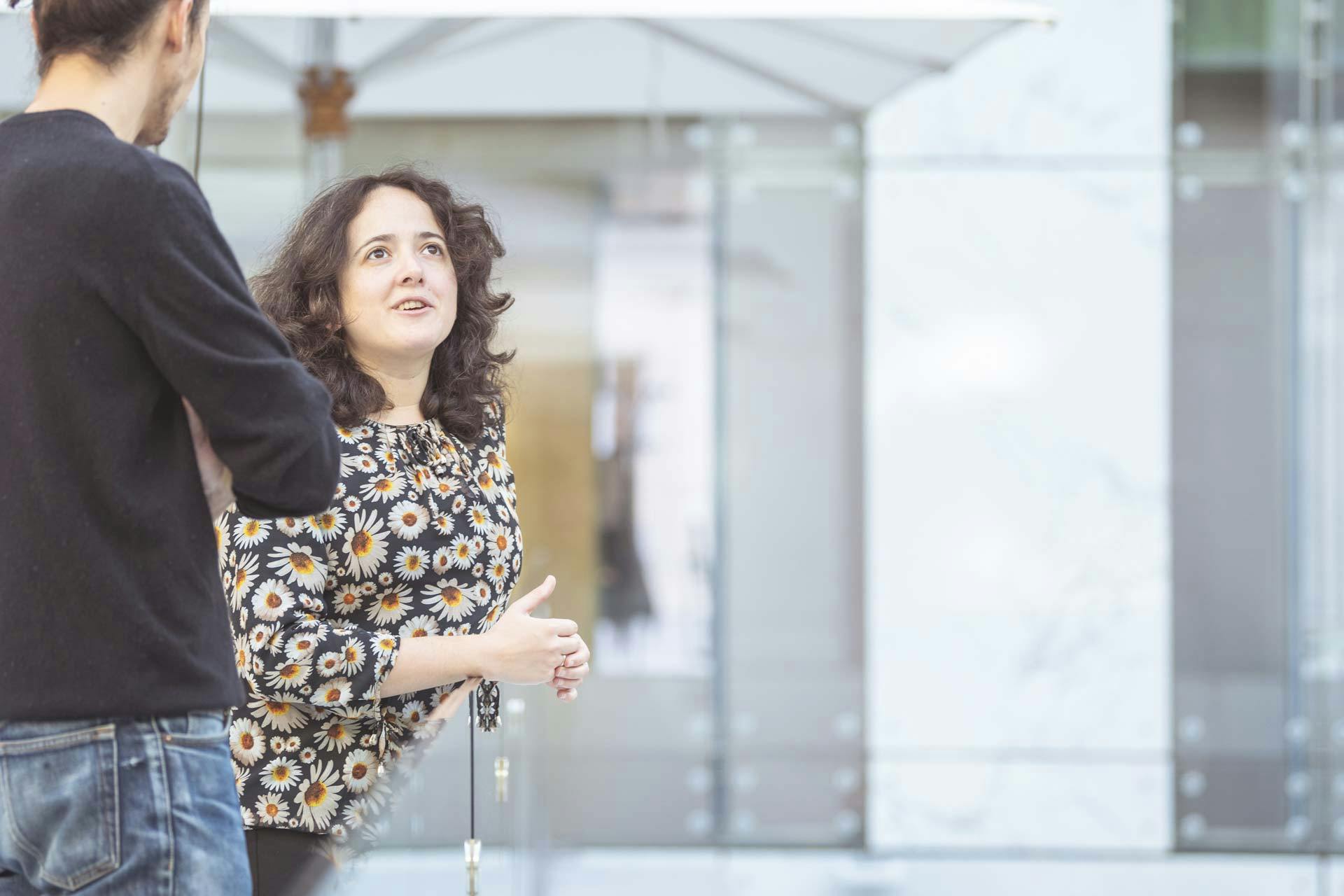
November 21, 2019
The one whose nano-devices can help detect cancer
Here’s one nano with a mega impact: thanks to Dr Serap Aksu’s research efforts, tiny metallic structures are now able to detect the early presence of HPV viruses responsible for cervical cancers. And what’s more: these microscopic workers are so cheap to produce and easy to deploy they could be the next game-changer in the fight against other plagues like HIV.
3 minutes
For their maker, Serap Aksu, the idea of creating useful tools has been a guiding light throughout her career. As far back as high school, which she attended not very far from Istanbul, producing and experimenting were what she liked best. I was chosen to represent Turkey in Chemistry at an International Science Olympia in Greece
, she recalls. She went home with the Bronze Medal and the unshakeable feeling that she was in her element. She never felt limited or constrained in her choices: I was born in a region where even the poorest families would sell everything they had to send their children to school, to give them a chance at a bright future
, she says. She was free to envision herself as she wanted.


Consequently, with high school behind her, she followed her passion for creating things and chose to put her analytic mind to good use and become an engineer. She went to Sabanci University in Istanbul and studied Materials Science. Always a practical person, she thrived in problem-solving situations. So much so that her advisors pushed her to pursue an academic career, sensing a researcher in the making. She got enrolled in a PhD degree at Boston University, in the US, making its photonics center her new home.
Those years studying the technology and science of light would shape what is now a groundbreaking innovation: Serap is currently developing an early detection method for cervical cancer using nano-sized metallic structures as biosensors for ultrasensitive detection of DNA fragments from carcinogen HPV types. It’s a mouthful, but the impacts are huge. Two HPV types, 16 and 18, cause 70% of cervical cancers and precancerous cervical lesions. Aside from vaccination, which has been available for young women aged 9 to 14 since 2006, another effective early detection measure is cervical screening. But the costs associated with such procedures are prohibitive. Especially considering that more than 85% of the 311 000 women who died from cervical cancer in 2018 lived in low-income and middle-income countries according to the World Health Organization. Serap’s invention would not only enhance the reliability and accuracy of oncogenic virus detection, but also its accessibility and cost-effectiveness.


My motivation has always been to do something useful for people
, she says. Even my friends can benefit from this. I’m a practical person: I see a problem, I look for a solution, the most efficient solution I can find
. A mindset that was encouraged by her PhD advisor, whom she credits for having the biggest influence on her career. She is today the first and only female Assistant Professor in the Physics department at Koç University in Istanbul. Instead of joining the private sector, she chose to return to the academic field in order to help shape the next generation of engineers. I want to transfer my knowledge
, she explains. I feel a sense of responsibility to help others benefit from what I benefited. I feel I can have an impact on their careers, as my academic advisors have had on mine. I always tell them there is a solution to every problem, you just have to be perseverant enough to find it
.
Women’s health and entrepreneurship: two key commitments for AXA
Serap is one of the 8 scientists who received an AXA Postdoctoral scholarship through the AXA Research Fund call for project on Women Health.
Women are key to developing our overall vision of being an ever closer partner for all our customers, since women engage us and push us to answer their specific needs in innovative ways.
Thomas Buberl, CEO of AXA.
Published in 2015, the She for Shield
report was the first to comprehensively explain women’s lack of financial protection, especially in emerging economies. Since then, we have stepped up our efforts to stop discrimination against women, in the area of business financing as well as access to healthcare.
For the fourth year in a row, AXA is an official partner of the Women’s Forum, an international event devoted to ideas and solutions for unleashing women’s leadership in the economy and society. Read more about AXA's participation in the 2019 Women's Forum.



